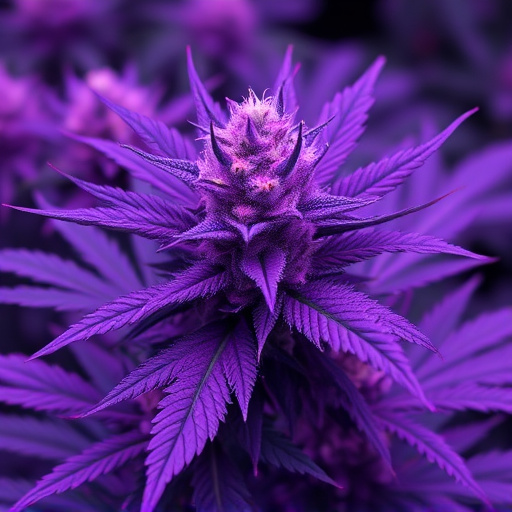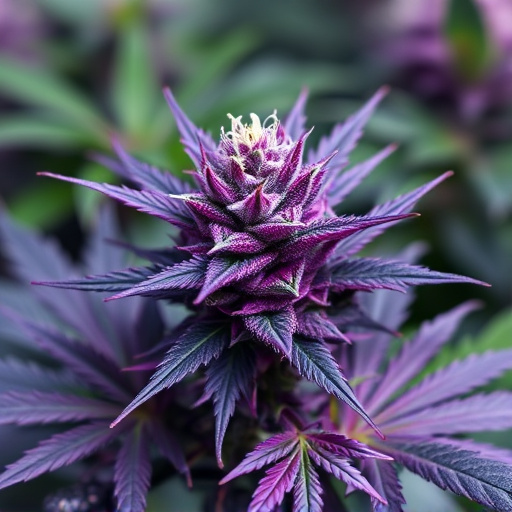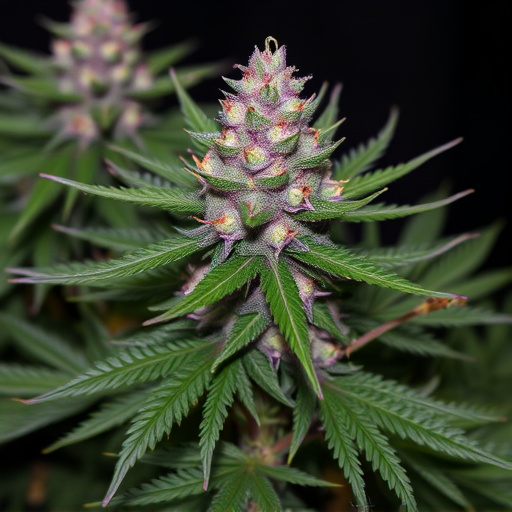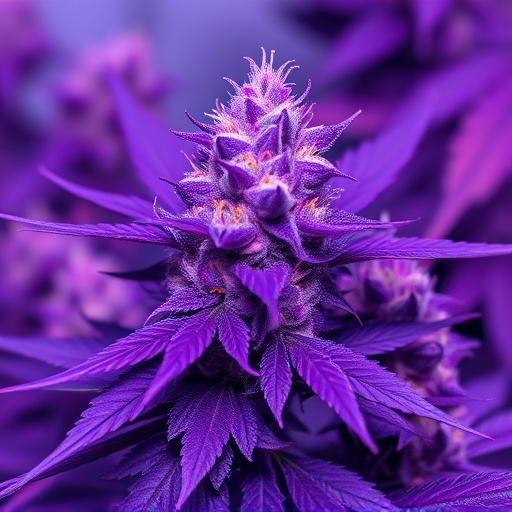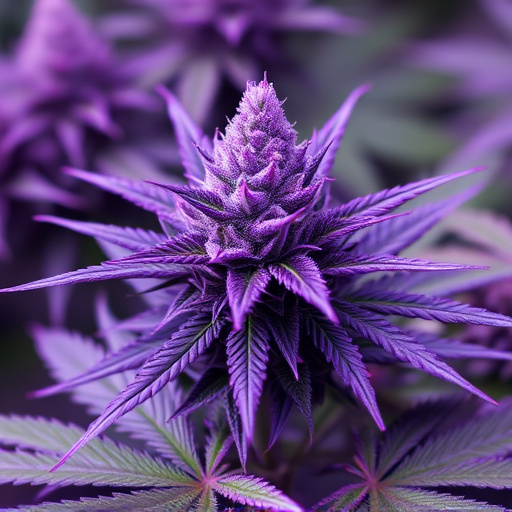Heavy use of purple cannabis strains with high THC levels can lead to both positive (intensified senses) and negative (anxiety, paranoia, hallucinations) short-term effects on daily life. Chronically, these strains may impair memory, concentration, decision-making, and increase risks of anxiety, depression, and accidents. Mindful consumption is crucial to avoid adverse effects, especially for those with mental health conditions, as excessive use can distort reality and impact cognitive functions.
“Curious about the potential fallout of heavy weed smoking? This article delves into the often-overlooked consequences of excessive cannabis consumption. From acute anxiety and hallucinations to long-term respiratory issues and mental health disorders, understanding these risks is paramount. We explore how ‘purple cannabis strains,’ characterized by their high THC content, can uniquely impact users. By examining both potential benefits and dangers, we aim to empower readers with knowledge, encouraging responsible use and prompt help-seeking when needed.”
- The Short-Term Effects of Heavy Cannabis Use
- – Exploring the impact on cognitive functions and mental health
- – Increased anxiety, paranoia, and potential hallucinations
The Short-Term Effects of Heavy Cannabis Use
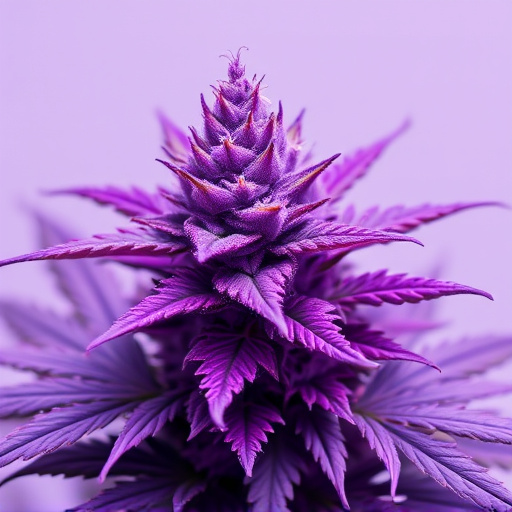
Heavy cannabis use, especially with potent purple cannabis strains, can lead to a range of short-term effects that may impact your daily life. Users might experience heightened senses and an altered perception of time, which can be both enjoyable and disorienting. This heightened awareness can manifest as increased sensitivity to sounds, sights, and smells, often described as intensifying the sensory experience. However, it can also cause anxiety, paranoia, and a distorted sense of reality, particularly in individuals prone to psychotic disorders.
Cognitive functions may also be temporarily affected, leading to difficulties with memory, concentration, and problem-solving skills. Coordination and motor skills can be impaired, affecting balance and fine movements, which can be especially risky when engaging in activities that require precision or judgment. Additionally, heavy smoking can result in rapid heartbeat, dizziness, and nausea, highlighting the potential physical consequences of excessive consumption.
– Exploring the impact on cognitive functions and mental health
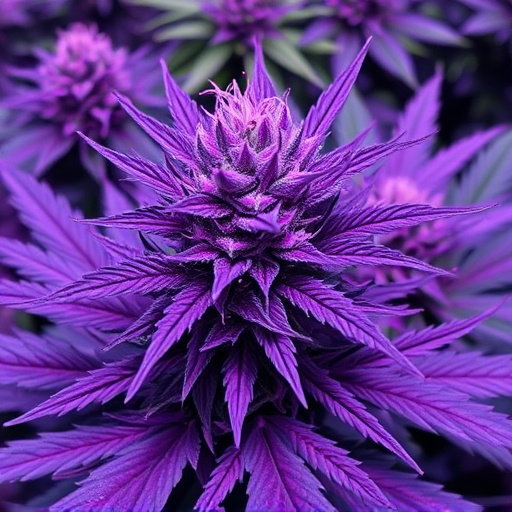
Chronic marijuana use, especially with potent purple cannabis strains, can have significant effects on cognitive functions and mental health. Regular consumption can impact memory, attention, and problem-solving abilities, particularly in adolescents whose brains are still developing. Studies suggest that heavy cannabis use may lead to impaired executive functioning, making it harder to make decisions, control impulses, and maintain focus.
Beyond cognitive impacts, prolonged exposure to marijuana’s psychoactive compounds can contribute to mental health disorders such as anxiety and depression. While some individuals claim cannabis helps manage stress and promotes relaxation, excessive use may exacerbate these conditions, especially in those predisposed to psychiatric issues. The interaction between purple cannabis strains, with their elevated THC levels, and individual neurobiology deserves further exploration to understand the nuanced effects on mental well-being.
– Increased anxiety, paranoia, and potential hallucinations
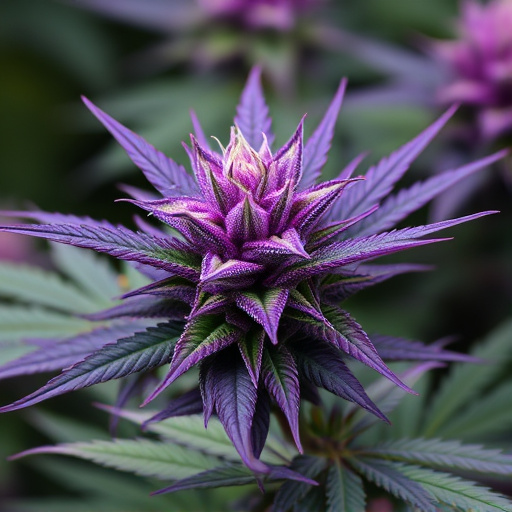
Smoking too much weed can lead to some unpleasant experiences, especially for those who consume high-THC purple cannabis strains. Beyond short-term effects like heightened senses and increased laughter, excessive use may result in elevated anxiety levels, paranoia, and even hallucinations. These symptoms can be more pronounced in individuals with a predisposition to mental health conditions or those who have a higher tolerance developed through regular consumption.
Purple cannabis strains, known for their potent THC content and unique terpene profiles, can exacerbate these issues. The intense high they provide may offer temporary relaxation, but it often comes at the cost of cognitive impairment, irritability, and a distorted sense of reality. It’s important to be mindful of personal limits and consumption habits to avoid such adverse effects, ensuring a more balanced and enjoyable experience with cannabis.
While occasional use of cannabis may not cause significant issues, heavy and prolonged use, especially of potent purple cannabis strains, can lead to adverse short-term effects on cognitive functions and mental health. Increased anxiety, paranoia, and potential hallucinations are common risks, highlighting the importance of mindful consumption. Understanding these impacts is crucial for users to make informed decisions and maintain a healthy relationship with cannabis.










